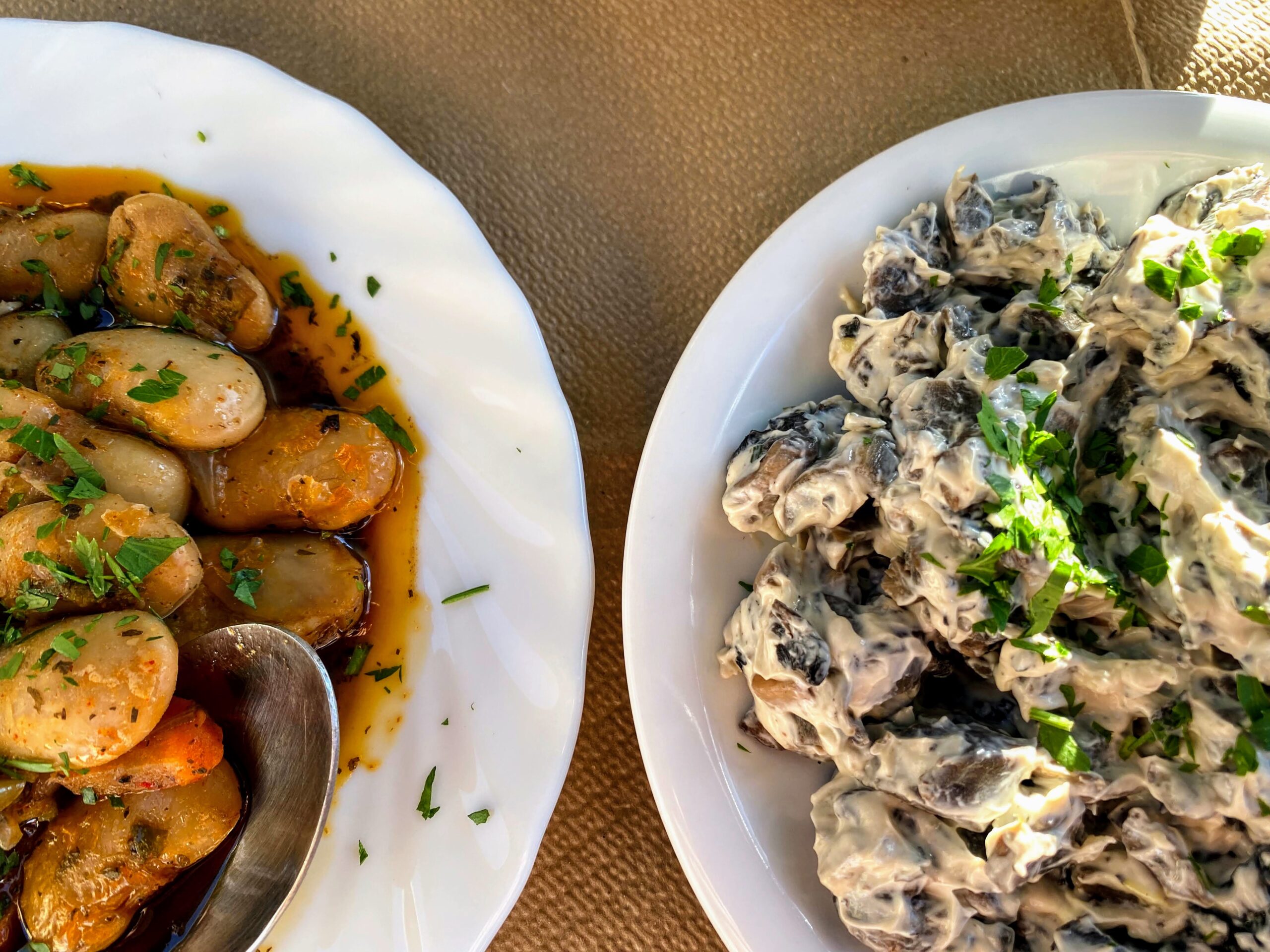
One of the biggest concerns travelers have when they’re planing their trip to Greece is the food, particularly people who are vegetarian or vegan or who have food allergies. The truth is, eating in a different country can be scary. I remember several years ago, when I was much younger, I would stick to basic menu items (bread, spaghetti no sauce, no cheese) and this because I didn’t want to ruin my holidays getting sick. Well, that it is one way of doing things but it would be a pity if you didn’t fully enjoy the wonderful variety of food products and dishes Greece has to offer.
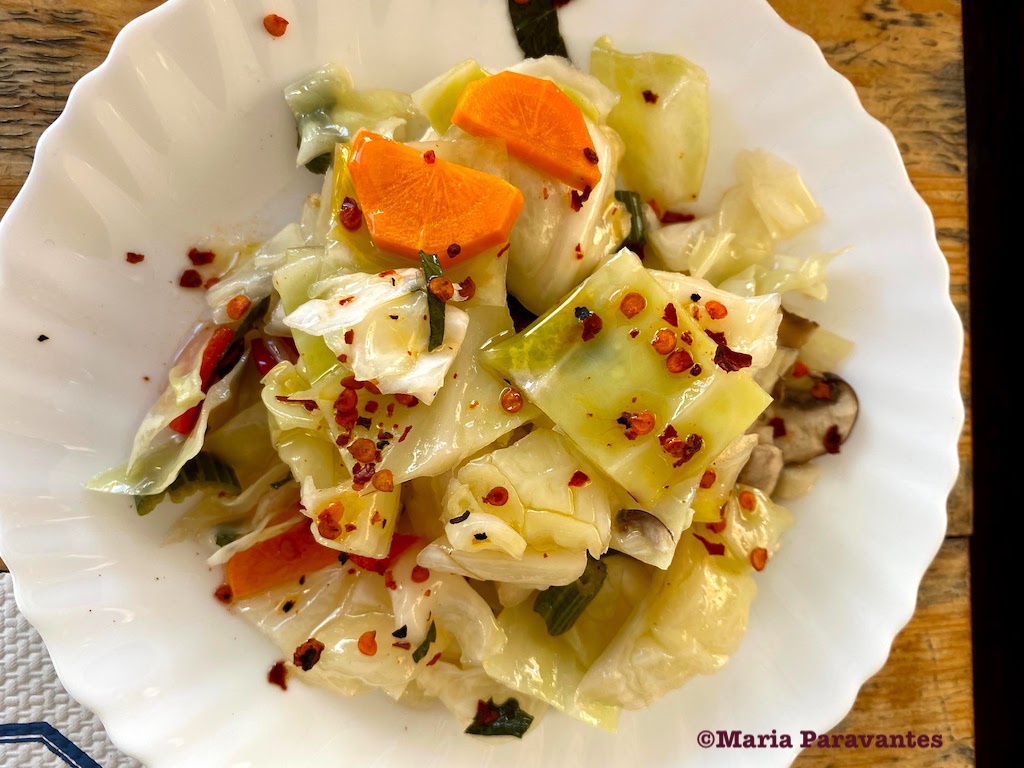
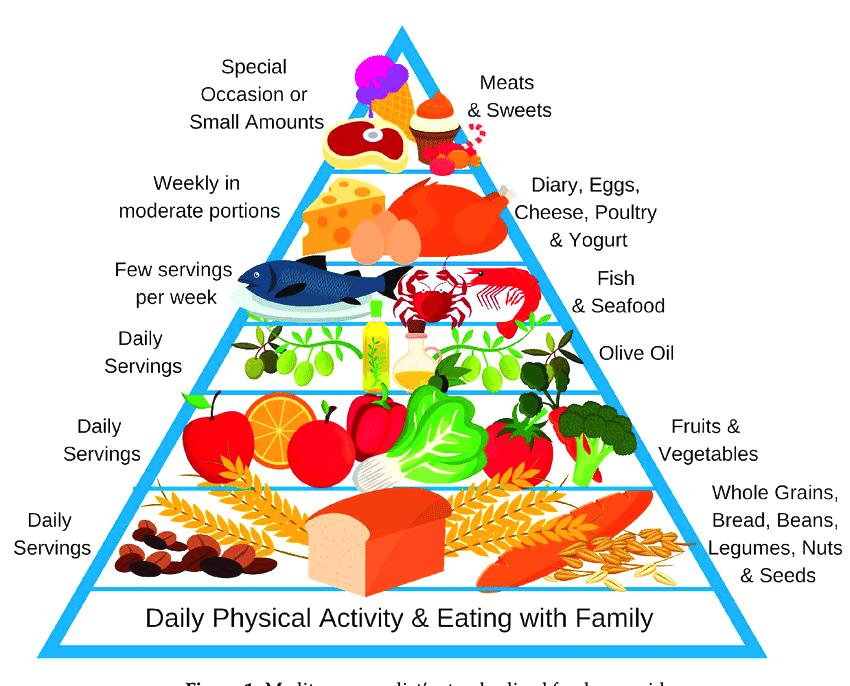
For me – and I’m trying to be as objective as possible here – traditional Greek cuisine is perhaps one of the ‘most vegetarian’ and vegan-friendly cuisines in the world. I say this because one look at the Mediterranean Diet Pyramid and you’ll see that fruit, vegetables, beans, nuts, seeds and grains make up most of our daily intake. So what does that mean? Well, simply put: we Greeks are blessed with a natural nutritional plan handed down to us by our parents and grandparents that can easily be followed by someone who is vegan or vegetarian. Why? Because there are literally hundreds of recipes that do not involve meat or dairy.
Let’s not forget, it is this very diet or better yet let’s call it a “food plan for life” that scientists say explains why people on Crete, Ikaria and in some Southern Italy villages live lone healthy lives into their 100s. These foods which I grew up with form the foundation the Mediterranean Diet, which is one of the leading plant-based eating plans recommended by doctors, nutritionists, spiritual teachers and wellness experts across the globe. For expert advice, up-to-date info and great recipes visit OliveTomato.
► How to Live Long and Happy Like a Greek
Maria’s Tips: Ordering Vegan or Vegetarian in Greece
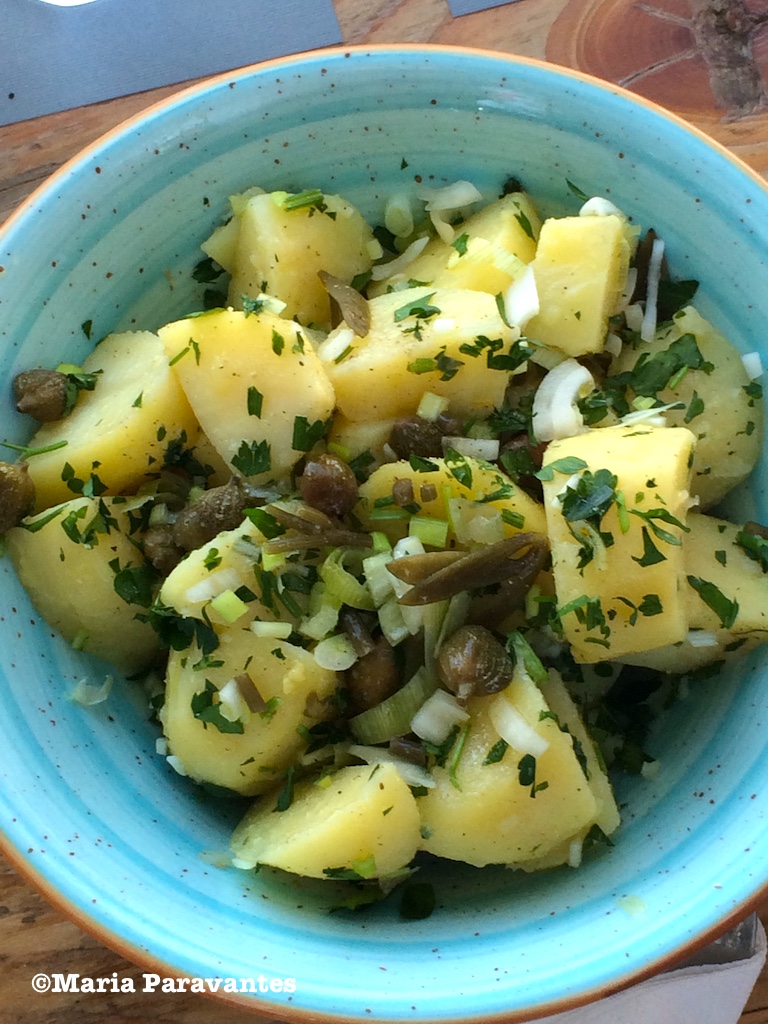
▶︎First and foremost: start by telling your waiter that you are a “hortofagos”. Eime Hortofagos literally translates into “I eat greens” and means “I am vegetarian” in Greek. If you’re vegan, just say so, everyone knows the term in the main cities and popular islands. In remote villages, stick with hortofagos.
▶︎You can always find vegetarian dishes at Greek restaurants and tavernas and this because the traditional Greek diet is mostly based on vegetables. So ask about what’s available in “ladera” or “ospria”. Ladera means prepared “in olive oil” and includes a variety of vegetables cooked in olive oil such as beans, okra, eggplant, artichokes, and nearly all others. Ospria are legumes, which were a central part of the diet on the Greek islands.
👉🏼 Dream of visiting Greece? Start planning
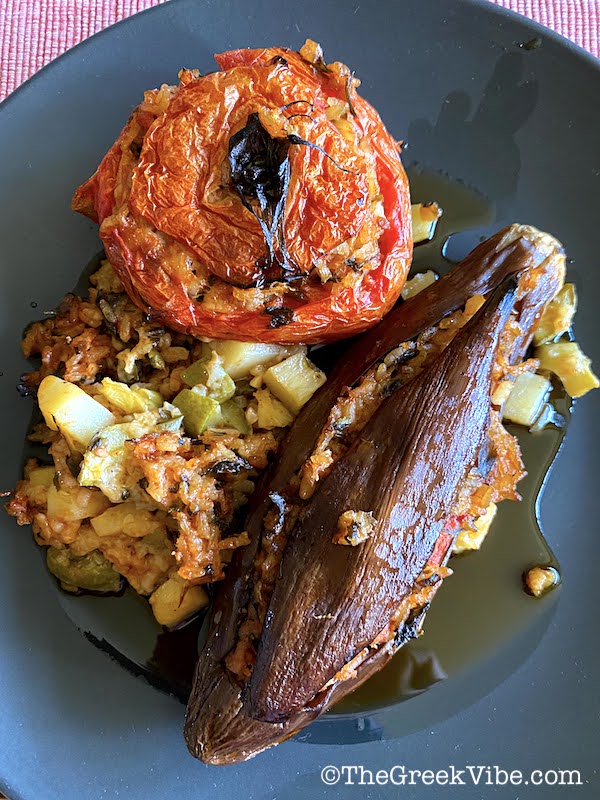
▶︎Go Greek salad… the omni-present Greek salad is a complete meal in its own right with some informed restaurants even serving vegan feta cheese. A second great option is Crete’s famed “dakos” a barley rusk covered in sliced or grated tomato and dressed with extra virgin olive oil. If you’re off dairy, tell them to keep the cheese off.
▶︎Get a souvlaki! Yes, even the staunch souvlaki joints have added a vegan/vegetarian option to their offerings. So you can actually get the whole souvlaki + pita experience without the meat – just ask for an “ecologiki pita” which is basically various grilled vegetables in pita bread. Some places accompany with water-based tahini sauce.
►Go Vegan in Greece At These Top-notch Athens Eateries
▶︎Sample the spreads! Greek cuisine just loves dips and so will you. Choices like melitzanosalata (smoked eggplant dip), kaparosalata (made of Greece’s famed capers), skordalia (garlic dip), fava (made from split peas), revithada (a chickpea stew) with freshly baked bread and olives can go a long (and fulfilling) way.
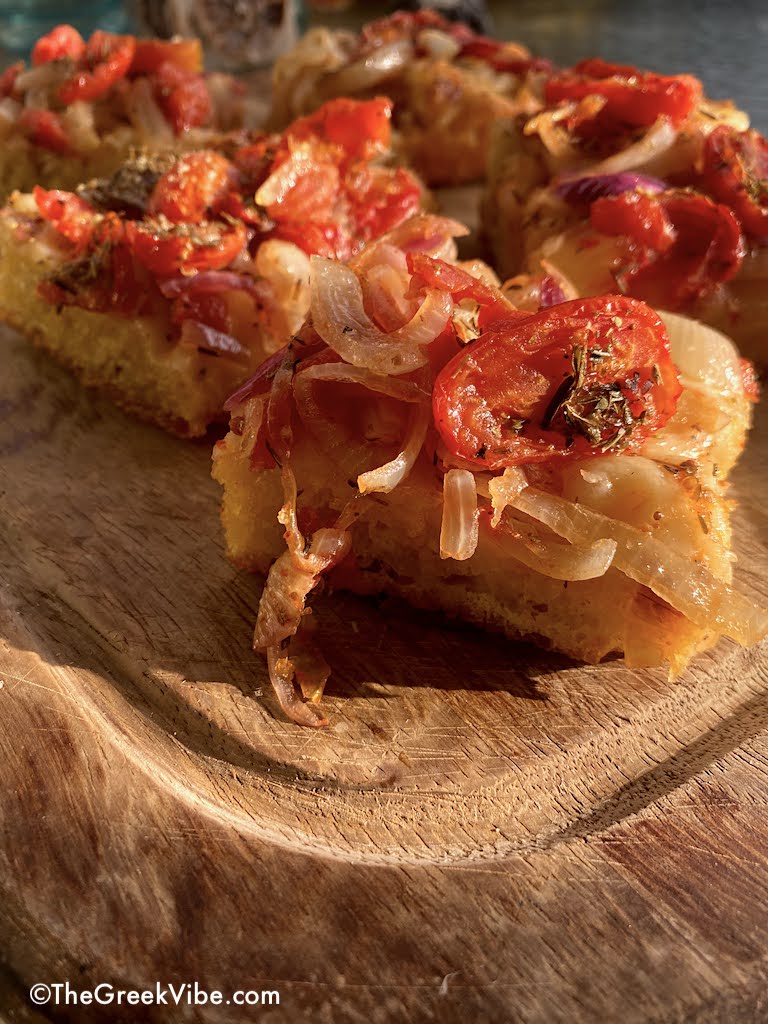
▶︎Do it the ‘fast’ way… as mentioned above, many Orthodox Greeks observe fasting guidelines, which basically apply throughout the year – ahead of Easter, Christmas, all holidays dedicated to the Virgin Mary – and in the strictest versions do not include olive oil. During this time, most of Greece’s bakeries (fournoi) and restaurants offer the so-called “nistisima” (fasting foods). Even Mac Donald’s in Greece offers this option.
▶︎ Fritter away. Not the healthiest choice, but Greek tavernas always serve at least three types of fritters depending on the vegetables in season (revythokeftedes, tomatokeftedes, kolokythokeftedes). With some dip and wine, you’re done.
▶︎Opt for traditional dishes… spanakopita (spinach pie) or hortopita, which is greens pie without cheese (make sure to ask about the cheese just to be sure), spanakorizo (spinach and rice stewed), gemista (stuffed veggies – again make sure to say “horis kima” without meat as in some regions they add minced meat), dolmadakia (vine leaves stuffed with rice and herbs), briam (ratatouille), gigantes (baked beans), imam baildi (eggplant in tomato and garlic sauce), bamies (okra in tomato sauce), horta (greens), piperies Florinis (Florina red peppers), and pies with veggies.
►Greece’s Fanouropita: A Vegan Cake to Help You Find Lost Items?
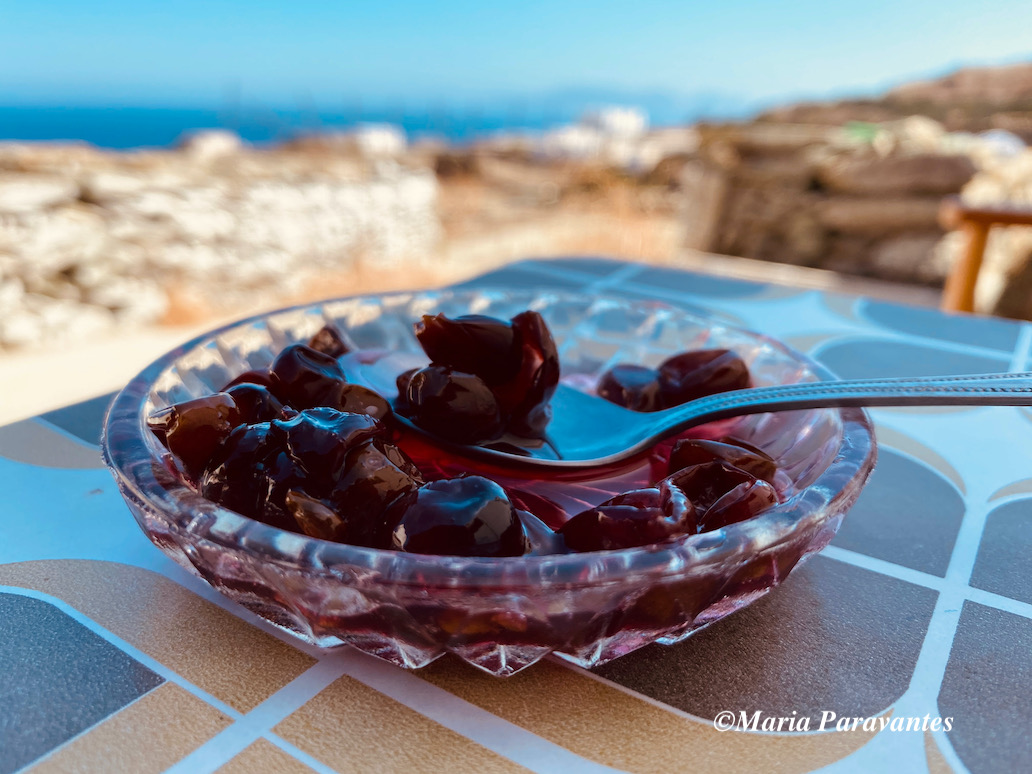
▶︎For the sweet-tooth: besides the latest non-dairy, sugar-free, date-based varieties, traditional Greek desserts include tahini-based halvas, “nistisimos baklavas” (made with olive oil), loukoumades (fritters) with or without honey, loukoumia, and spoon sweets made of fruits, blossoms and even some veggies.
► Spoon Sweets – A Traditional Greek Dessert
▶︎One more note for those of you with allergies: most of Greece’s traditional desserts have nuts in them. With some exceptions. So avoid the syrup-based traditional sweets (baklavas, kataifi, karydopita). Instead, stick to the the traditional spoon sweets (glyka tou koutaliou) which all restaurants have. They are usually served with Greek yogurt. If you don’t eat yogurt, just tell them not to bring it. For those of you who drink milk you could have creme-based desserts like galatopita (creme pie), galaktoboureko (custard and phyllo dessert), or rizogalo (rice pudding which can also be made with almond milk).
► Cook healthy with ‘The Mediterranean Diet – Cookbook for Beginners’
“Let thy food be thy medicine and thy medicine be thy food.
Hippocrates
❤️ Follow The Greek Vibe on TikTok too!
Enjoyed this Post? Share and Pin it!
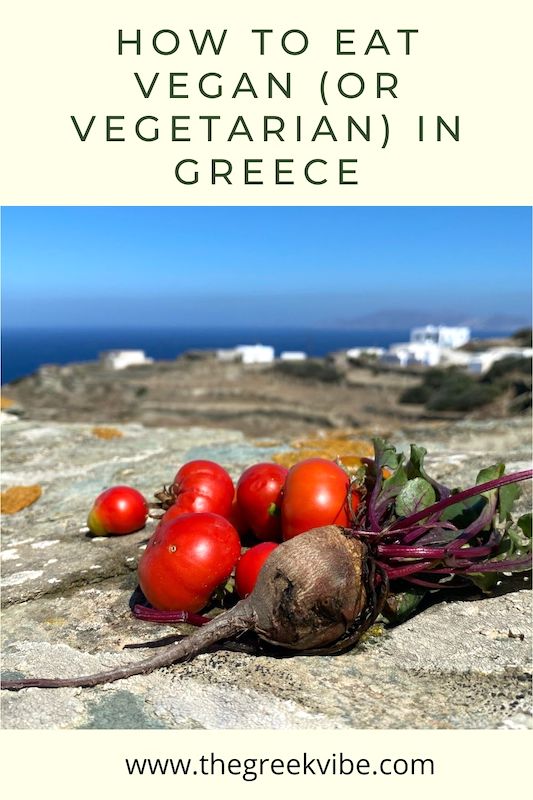


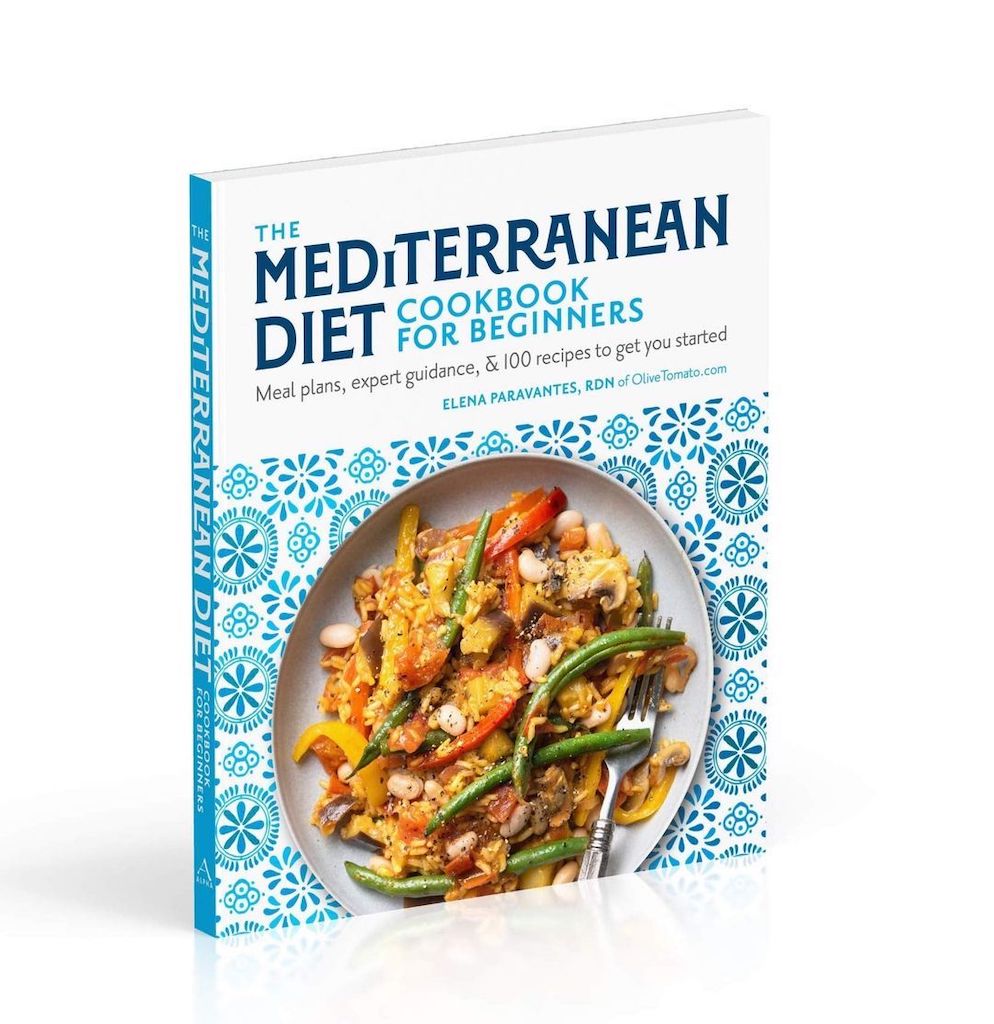

Thank you for your post!
Happy you enjoyed the read.